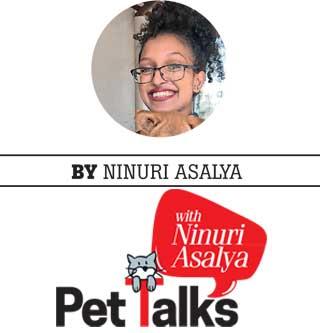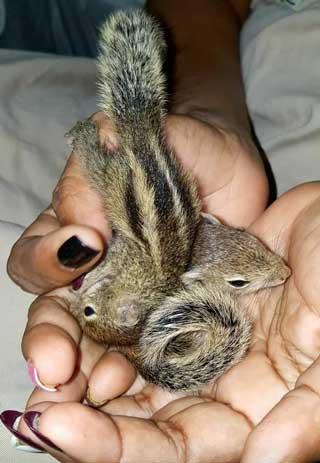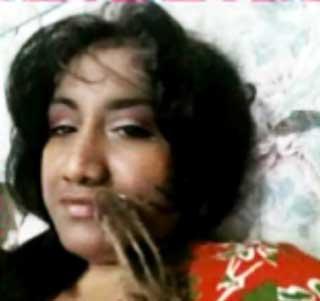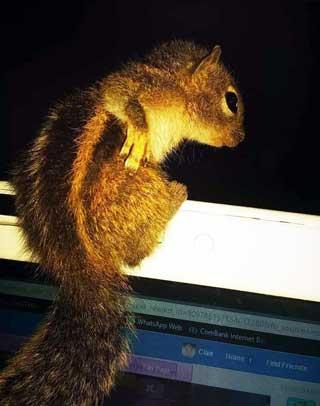14 Aug 2021 - {{hitsCtrl.values.hits}}
 Welcome back to Pet Talks! Today, we will be discussing squirrels - who are not domesticated animals, therefore not pets. To take a step back, the Animal Welfare Bill is yet to be passed, although it seems that the proceedings are supposedly well on their way. I’d dare say the lack of the latter has only allowed public misconceptions and misinformation on animal welfare to fester. One of which, that squirrels are pets. Perhaps with the impending passing of the bill, the government would make preparations for public education on animal welfare. One can only hope.
Welcome back to Pet Talks! Today, we will be discussing squirrels - who are not domesticated animals, therefore not pets. To take a step back, the Animal Welfare Bill is yet to be passed, although it seems that the proceedings are supposedly well on their way. I’d dare say the lack of the latter has only allowed public misconceptions and misinformation on animal welfare to fester. One of which, that squirrels are pets. Perhaps with the impending passing of the bill, the government would make preparations for public education on animal welfare. One can only hope.
Having met a few locals who cage or wall squirrels in their homes, at the time, I hadn’t the slightest idea that this was wrong. I only came to be informed that squirrels are wild animals and not domesticated pets much later. As we do not have public education on animal welfare on cats and dogs, let alone squirrels or birds, this shouldn’t come as a surprise. As such, it is unfortunate that this is not public knowledge, which in turn risks innocent, voiceless lives.
I have Nilu from 'Misha & The Sri Lankan Squirrels' joining us for this topic, to help expand public knowledge on squirrels, as well as shed some light on her impressive community work.
Q. What is your backstory?
I have been an animal lover for as long as I can remember, but I fell in love with squirrels the day I found Misha. Misha came to me when she was a newborn baby. Unfortunately, her sibling had already passed away by the time we found them. Misha needed intensive care, given her young age, to survive without a mother - she hadn’t even opened her eyes at the time!
I struggled to find information online on how to look after her. Having joined numerous social media groups, I heeded the advice of many strangers. That’s where I met the person who changed my life forever - my mentor Laura Ross from the USA. She had a vast knowledge on the topic and over 40 years of experience. To provide some context on Ross, she is a degree holder, a researcher, as well as a licenced rehabber. She introduced me to another mentor named Aimee Brown, who provided help during difficult times. With their help, I began the first and only squirrel Three R’s program - Rescue Rehab Release, in Sri Lanka.
Ross was a strict mentor; she pushed me to help the squirrels in Sri Lanka by passing on her knowledge to me. If not for her help and Misha, I would not be where I am today. I am also eternally grateful for Aimee, my team, my husband & God for their support in this endeavor.
Q. Tell us about 'Misha & The Sri Lankan Squirrels' and its operations
‘Misha & The Sri Lankan Squirrels’ was initially a Facebook Group created for the community to share their stories of the squirrels they had rescued and rehabbed. I never imagined that the group would evolve to a state where countless innocent lives would rely on our help on a daily basis. Due to the urgency, the persons involved had to be expanded beyond myself to provide more efficient aid.
As such, all Admins are trained to handle sick baby squirrels and to help those who find newborn squirrels with the basics. The moderators are those in training for admin roles, who have so far mastered the latter of the two. As of now, the group had two admins & five moderators overseeing the activities of the group.
In a nutshell, our operations are the three R’s - Rescue Rehab Release. This program applies to babies without mothers due to abandonment or fatal incidents. We essentially provide guidance to those who find such babies on how to nurture them. In situations where they are unable to do so, a foster is sought. As such, they will follow our instructions on how to raise a squirrel baby and train & release them once they are of age.
Q. Squirrels can have disabilities or suffer from trauma, just as any other animal. Help us understand this better.
Sick or injured squirrels fall under the following categories.
Pneumonia as a result of overfeeding or improper feeding, causing milk to go through their nose and into their lungs. This is followed by refusal to ingest food or milk, aspiration or troubled breathing. Loose motion or diarrhoea as a result of improper formula, overfeeding or improper feeding. Diarrhoea is more dangerous than loose motion as it is contagious to other squirrels. Seizures due to poisoning, traumatic events, lack of calcium in the immune system or an illness that weakens the immune system. Animal Attacks, ranging from cats and dogs to snakes and birds, can result in trauma or bacterial infections. Cat attacks involving saliva in wounds can kill squirrels within weeks, while dog attacks generally result in head or spinal trauma. Mental Trauma as a result of an attack or fall, can cause distrust or refusal to ingest. Recovery can take days and a lot of effort to avoid further trauma. Spinal Trauma as a result of cat or dog attacks, hindering their ability to walk. Head Trauma caused by attacks or falls, resulting in internal hemorrhage, affecting their coordination to walk or climb. Sepsis as a result of an untreated wound that has been infected, can be fatal. It is curable; however, when a higher dose of antibiotics is required, it can often cause fatal lung or liver failure.
Q. Squirrels are known to be undomesticated. So what is their foster care like?
I can’t say this enough - Squirrels are not domesticated pets, they are wild animals. Typically, at a certain stage, “pet squirrels” will undergo hormonal changes and begin attacking their caretakers. These innocent animals need freedom and nature - they should not be caged. Once they are of age, they have to be trained to the outside world and released into the wild.
However, certain squirrels that have disabilities cannot be released, and those who do not fully recover cannot survive in the wild. Under these unfortunate circumstances, they remain with caretakers.
It’s uniquely difficult to care for a squirrel. As they are wild animals, most common vets are unsure of the medicine or dosage they may require when ill. And so, administering medication is an elaborate process. As they cannot be given injections due to the risk of overdose, pills have to be carefully portioned in accordance to body weight to avoid overdose or underdose.
Their diet is also rather taxing, especially with baby squirrels. While ensuring that their food is proportionate to their weight, they need to be properly hydrated and the milk has to be just the right temperature. The actual process is much more complex, as several factors need to be taken into account prior to feeding a newly rescued baby squirrel, as well as solving complications that occur during the feeding. Once weaned, they are introduced to vegetables [not fruits] & green leaves.
In the case of baby squirrels, hydration is followed by the process of urging them to pass urine and feces. They find it difficult to do so on their own, as they are typically nursed by their mothers during this age to facilitate the process. Therefore, fosters follow a procedure that mimics the latter.
Q. What challenges does 'Misha & The Sri Lankan Squirrels' face?
 At first glance, to the public eye, it may seem like an easy task. Let me assure you, it is not. We are constantly trying to balance our personal lives, our work lives & this service. It’s extremely difficult as most of us are generally always awake for several days on end, taking care of our own rescues as well as guiding inexperienced fosters on how to do so. To give you an idea of how hectic it is, we often get 25 cases per day, and those are not necessarily geographically limited to Sri Lanka. All of which we handle even when admitted to hospital or at a function or funeral.
At first glance, to the public eye, it may seem like an easy task. Let me assure you, it is not. We are constantly trying to balance our personal lives, our work lives & this service. It’s extremely difficult as most of us are generally always awake for several days on end, taking care of our own rescues as well as guiding inexperienced fosters on how to do so. To give you an idea of how hectic it is, we often get 25 cases per day, and those are not necessarily geographically limited to Sri Lanka. All of which we handle even when admitted to hospital or at a function or funeral.
It is tragic that we do not have a rehabilitation course for squirrels in Sri Lanka that can be followed to obtain a license, as in foreign countries. Further, we cannot register and establish our group as we deal with wildlife, so we are unable to receive specific documentation that would certify us as qualified for our field work, or even find a good veterinarian who is willing to learn how to treat squirrels to help with medication. As such, we often receive backlash from those unfamiliar with our work, who wrongfully wish to shut us down. It’s a sorrowful ordeal as we’ve put in our sweat and blood, our time and effort and even our own funds to help these poor animals, at the expense of our own lives and health.
Q. How can the public contribute to 'Misha & The Sri Lankan Squirrels'?
You can contribute by simply following our work. We do not seek publicity, but public awareness & appreciation would go a long way. We do not require donations - if someone needs help with obtaining food, milk, medicine or transport, we seek help within the group itself. We urge you to join the 'Misha & The Sri Lankan Squirrels' Facebook group and experience it for yourself.
Anyone who wishes to help our free service by joining the team, I welcome you to do so with open arms! I am always willing to train anyone who is dedicated to the cause and is trustworthy. As animal lovers, we should have it in us to remind ourselves that this is bigger than us, and is about saving innocent lives. It can be very stressful, but will undoubtedly bring you great joy.
Lastly, my dream is to one day open a sanctuary for disabled and non-releasable squirrels, where other rescues can also be trained and released. But first, we intend to achieve a license for our work. If you are able to provide help in this regard, it would be greatly appreciated.
07 Jan 2025 4 hours ago
07 Jan 2025 4 hours ago
07 Jan 2025 5 hours ago
07 Jan 2025 7 hours ago
07 Jan 2025 7 hours ago